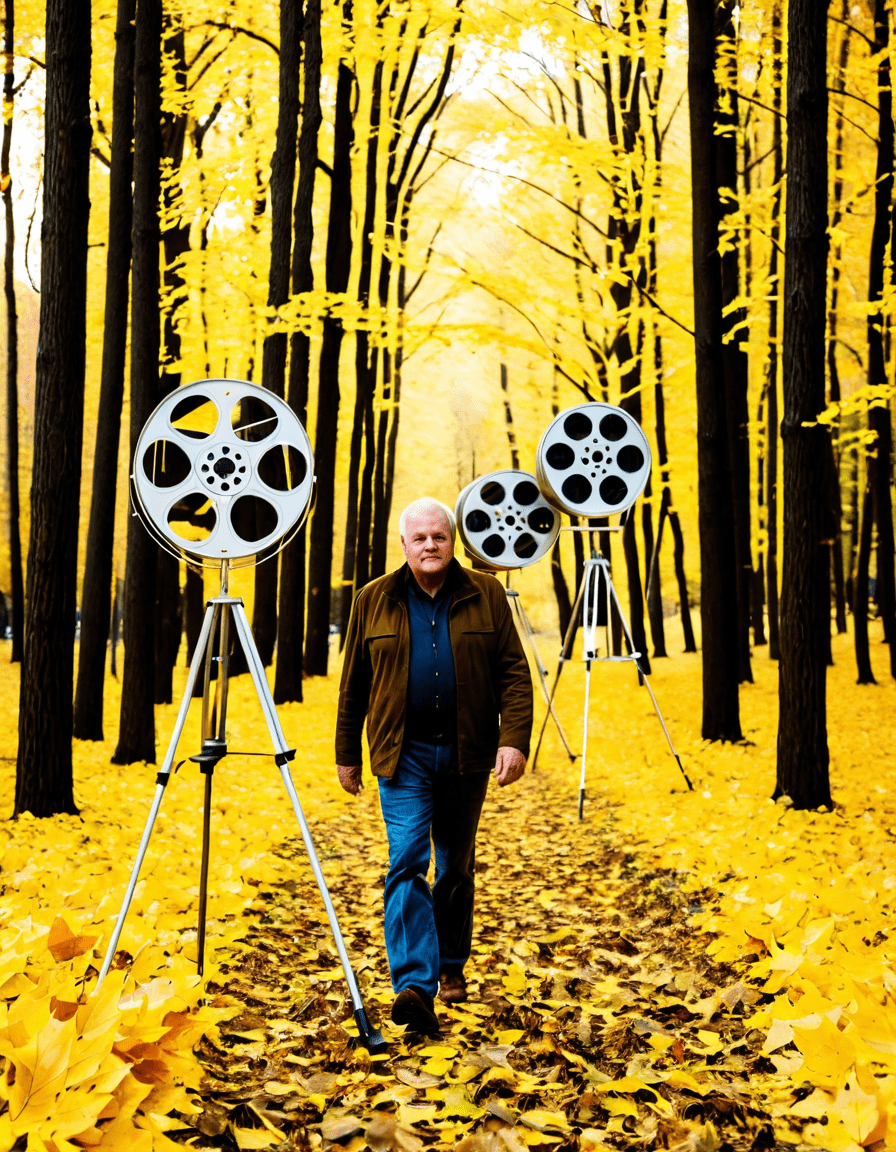Hattori Hanzo stands tall in the annals of Japanese history, leaving behind a legacy that’s as rich as it is captivating. Born in the late 16th century, he’s not just remembered as a samurai, but as an extraordinary ninja leader. His story unfolds during the Sengoku period, a chaotic era marked by strife and political intrigue. Hanzo aligned himself with the Tokugawa clan, a powerful family that would go on to unite Japan. Understanding his role gives us insight into the strategies, loyalty, and tactics that defined this turbulent time, and in so doing, it reveals the essence of Hattori Hanzo’s brilliance.
As one delves into Hattori Hanzo’s life, one can’t help but see how he interwove loyalty and warfare into an elaborate tapestry of history. He embodied the spirit of perseverance, deftly navigating the pressure of constant conflict while teaching his followers about honor and strength. His legacy is not only a reflection of his martial prowess but also of the ideals that shaped the ethos of Japan itself.
To explore Hattori Hanzo’s influence is to unwrap a story layered with historical significance and profound lessons — lessons that resonate even today. Those willing to tread further into Hanzo’s multifaceted world will discover not just a legend but also elevated principles of loyalty, tenacity, and the wisdom of choice.
1. The Legacy of Hattori Hanzo in Japanese History
Hattori Hanzo’s life encapsulates the drama of the Sengoku period, a time when Japan was a melting pot of conflict and ambition. The socio-political landscape was marred by endless battles as various clans grappled for supremacy. The Tokugawa clan, with Hanzo by its side, emerged as a force of stability amidst this chaos, leading to the eventual establishment of the Tokugawa shogunate.
His role wasn’t confined merely to combat; he was a pivotal figure in the intricate web of strategy that characterized this era. The tactics he employed set the groundwork for future generations, and his contributions to espionage and guerrilla warfare have left an indelible mark on Japanese military history. In essence, understanding Hattori Hanzo’s journey offers insights into a formative phase in the burgeoning narrative of Japan.
Hanzo’s life exemplified what it meant to be both a warrior and a statesman. His loyalty to his clan and his ability to adapt to the often-lithesome tides of power positioned him as a bedrock of support for the Tokugawa clan. Through this lens, one finds not just a skilled samurai but a dedicated strategist whose actions shaped the very essence of Japan’s future.

2. Top 7 Skills That Defined Hattori Hanzo as a Ninja Warrior
To grasp the phenomenal prowess of Hattori Hanzo, it’s key to dive into the skills that set him apart from his peers:
These skills combined painted a picture of Hattori Hanzo as a master of not just physical combat, but a maestro of mental and strategic warfare.
3. Hattori Hanzo in Popular Culture: Myths vs. Reality
Fast forward to today, and Hattori Hanzo’s name echoes in global culture, often shrouded in myth. Movies, video games, and literature have warped his historical narrative, emphasizing the mystique over reality. Adaptations such as Quentin Tarantino’s Kill Bill encapsulate the ninja’s embellished skills, presenting a character far removed from Hanzo’s actual life.
Film Interpretations: In Kill Bill, the character of Hattori Hanzo creates a captivating portrayal that appeals to audiences worldwide. However, it glosses over the gritty realities of his life—omitting the calculated strategies he employed in real battles of the Sengoku period.
Literature: Works like Shogun, penned by James Clavell, elevate Hanzo to almost mythic status, romanticizing events that might’ve been more grounded. Critical examination of these portrayals sheds light on our enduring fascination with the ninja legend, often influenced by contemporary cultural values.
Video Games: The depiction of Hattori Hanzo in games like League of Legends blends elements of history and fiction, further distorting the truth. While these portrayals spark interest, they rarely capture the authentic essence of Hanzo’s contributions.
In essence, while pop culture captures the imagination, the real story of Hattori Hanzo offers depth and authenticity that’s equally compelling.

4. The Enduring Influence of Hattori Hanzo on Modern Martial Arts
Hattori Hanzo’s teachings ripple through the fabric of modern martial arts today. His methodologies continue to shape the ninjutsu landscape and influence practices worldwide. Schools like the Bujinkan carry forth Hanzo’s legacy, establishing classes that focus on stealth, awareness, and adaptability.
His approach to combat—rooted in cognitive warfare—remains a cornerstone for self-defense training. Hanzo emphasized the importance of observation and psychological tactics, skills that are highly relevant in today’s world of modern martial arts.
As the martial arts community evolves, Hanzo’s influence serves as a continuous reminder of adaptability and strategic thought—a testament to how legends can transcend time.
5. Hattori Hanzo: A Symbol of Resilience and Loyalty
At the heart of Hattori Hanzo’s narrative lies a profound sense of loyalty intertwined with duty. His unwavering commitment to the Tokugawa shogunate is a reflection of the values cherished in Japanese culture. This dedication shines through his martial exploits, informing his decisions in moments of uncertainty.
Hattori Hanzo represents resilience, not just through his combat skills but also in his strategic acumen. Navigating the intricate world of samurai politics, he balanced ambition and loyalty with remarkable finesse. The complexity of his character serves as a lens through which we can appreciate the virtues of loyalty and integrity.
In reflecting on Hattori Hanzo, we see more than just an enigmatic samurai. His journey offers lessons in devotion and strength, reminding us that even in the face of adversity, resilience prevails. He remains an emblem, blurring the lines between myth and reality, encapsulating the rich tales that shape historical narratives.
In conclusion, Hattori Hanzo’s legacy is far-reaching and profound. His life intertwines history with myth, revealing deeper truths about loyalty, strategy, and resilience. As we continue to learn from his story, we not just recognize a legendary figure; we unearth invaluable lessons that have relevance today. From the art of strategy to the importance of interpersonal relationships, Hattori Hanzo stands as an enduring beacon in both historical and contemporary contexts.
So next time you’re traveling through Japan or exploring the realms of history, take a moment to ponder the significance of Hattori Hanzo—an unforgettable warrior whose impact still echoes in our modern lives.
Hattori Hanzo: The Legendary Samurai Ninja Master
The Samurai Who Shaped History
Hattori Hanzo, celebrated as one of Japan’s most legendary samurai, wasn’t just a master of the blade but also a skilled ninja. He served under the powerful warlord Tokugawa Ieyasu and played a critical role during the unification of Japan in the 16th century. In fact, his cunning strategies and unmatched skills in espionage written in the history books inspired countless stories – some of which transformed into pop culture staples, like the “Kill Bill” films. But did you know that in the quaint town of Gordonsville , Va, folks often celebrate such historical figures with themed festivals? It’s fascinating to see how history seeps into modern local culture!
Not All Heroes Wear Capes
A lesser-known tidbit about Hattori Hanzo is that he was also associated with the Tosa Inu, a dog breed known for its loyalty and strength. These dogs, once used to hunt game, have an interesting backstory intertwined with samurai culture. Speaking of loyalty, ever heard about the storied life of Jacqueline Kennedy onassis? Like Hanzo, she had an impressive sense of style, which has had a lasting effect on fashion even decades later. It’s these connections in history that make learning about figures like Hattori Hanzo so thrilling!
The Ninja Legacy Lives On
Hanzo’s legacy doesn’t just end with his martial prowess; it extends to the world of entertainment and popular culture, too. Take the inspiration behind films and books that reference ninja techniques, often drawing from Hanzo’s enigmatic life. Learning about figures like him can be quite the eye-opener! In contrast, did you know that modern-day pop culture often includes quirky references, like the term wiggle room to describe negotiation flexibilities? You might even catch a performance reminiscent of a traditional donkey show as part of a diverse cultural experience. It’s astonishing how history weaves its way into everything around us, including fun trivia about pets like the Tosa Inu, ensuring constant excitement and discovery!
By connecting the dots between past and present, we can appreciate the multifaceted influence of figures like Hattori Hanzo. His life reminds us that history isn’t a stagnant fare; it’s alive, colorful, and interlinked with the oddities and joys of our current world.






















